Mpila Camp
– Hluhluwe Imfolozi Park. An update to a review I
wrote in October 2015
The hectic National freeway with its plethora of Ore trucks and kamikaze road pilots, left to their own devices behind one, as we crossed the cattle grid and entered the Park. The race slows, dramatically slows, the pulse rate slows, back to normal, windows wound down, take a deep breath, the ‘pace’ becomes sedate, therapeutic, necessary. The atmosphere ‘crackles’ – the dust swirls, the scent of the effusions emanating from the myriad types of vegetation, soothes, calms, one’s senses. The gentle warm breeze adds another dimension to the experience, the game reserve experience. Wafting in a host of olfactory information - a rhino midden buzzing with its detritus collecting bugs, along with the ingenious dung beetles, returning and spreading these vital nutrients to the soil. The pungent remains of a victim to some predator, having a final sanitisation, by a highly active group of Nature’s most necessary and endangered clean-up squad, vultures, seemingly so awkward in their terrestrial feeding environ, combatting one another aggressively for a morsel, in such contrast to when in their avian environment, where they soar and thermal so gracefully.
The
Hluhluwe Imfolozi Park is the oldest protected wildlife sanctuary is South
African. A real gem of a game reserve, set in the heart of Zululand’s thornveld
The 110 bed
Mpila Camp is located on a chine on one of the ‘rolling hills’ of Zululand, in
the southern sector of the Hluhluwe Imfolozi Game Reserve. With the inevitable
bush encroachment, there is very little outward expansive view from the
accommodation units as in the early days. Quite a dramatic change from the
images in my 2015 review! Sadly this is not only significant with regards to
visitor pleasure and outlook, the general encroachment, in particular by the
pioneer plant Dichrostachys cinerea, the hard invasive Sickle wood, is
seemingly out of control. So many of the view sites that I and fellow Honorary
Rangers kept visually clear, are no more and heavily overgrown, they would
require heavy appropriate equipment such as chain saws and such to reopen these
vistas.
The accommodation is made up of selfcatering 2 x 3 bedroomed, 7 bed Cottages,
6 x 2 bedroomed 5 bed (sleeper) Chalets
and two sets of 6 x 2 bed chalets
Adjacent to the brick and mortar buildings, secreted away is an Senegalia burkei - Black Monkey thorn thicket, is the tented Safari camp, with predominantly 2 bed Safari tents, with only two of the 4 bed Safari tent units. These have two separate 2 bed tents each having their own shower, toilet and handbasin en suite. Both on a deck separated by the kitchen and dining area. These latter are particularly popular and difficult to secure, check availability with us and book as soon as you have your dates.
A 2 sleeper Safari tent with its kitchen, the reed clad building.
The bathrooms are not monkey proof , the bedrooms are, if zippered closed.
We offer a service whereby only a 10% deposit is needed to secure the accommodation with the balance due 45 days before arrival. There is no restaurant at Mpila Camp. All units at Mpila Camp have their own barbecue – braai !. You’re in the bush here, with no Wi-Fi and limited cell phone signal with no supermarket in close proximity. Bring all supplies, food, drink including alcohol, drinking water, firewood / charcoal for braai. The camp water is fine for bathing / showering.
The camp is
powered by generator, so consequently the accommodation has limited electrical
appliances, for example a stove top kettle, no microwave or toaster. The stoves
are gas with the fridges on electricity. This power goes off at 22h00 and comes
on again early mornings. The fridges seem to cope well with this arrangement.
It is advisable to take a lamp for these lights out periods should you
need. In summer a rechargeable fan works
wonders. All utilities in our cottage worked. The gas heated water, piping hot,
stove and fridges all good and lights and fans too when there was power, all
operated. That braai too was in good condition , set away from the danger of
sparks setting the thatched cottage alight, worked its magic too, with a little
help from a friend.
Mpila Camp
is not fenced, other than for a ‘high level’ electrified wire designed to keep
elephant from entering the perimeter. Consequently, guests may enjoy a wide
variety of our wildlife within the camp grounds. So, is it’s the browsing and
grazing within the camp by these herbivores that keep it looking so clipped and tidy, all
working for the Park? Do take care, as these are still potentially dangerous
animals, which have learned trust and a tolerance for people, up to a particular
closeness, then their “Flight or Fight” syndrome kicks in, an
automatic physiological reaction to an event that is perceived as stressful or threatening
to them, here’s hoping it’s their flight that is engaged, fight can have dire
consequences. The change can be instantaneous, and unless one is able to read
the animal’s body language, quite unexpected. Keep one’s distance. Use a torch at night if walking between accommodation units.
That innocuous looking Vervet monkey is an extremely opportunistic pilferer of anything edible and brazen to the extreme. Be vigilant, the camp shops don’t stock too much of a replacement supply.
Hyena and the Wild Pig need to be monitored and watched in the evenings. It has been known for them to remove food from the hot braai grids, if not judiciously monitored and they can be rather persistent. I do not know of an attack on guests by these nocturnal visitors.
Mpila Camp is well located for guests to visit the excellent Umfolozi Basin, a favourite area within the game reserve, that has the Black Umfolozi River bank as a prime attraction. The White Umfolozi River is relegated to the wilderness area of the Park and only possible to access at a view point in the far south west of the game reserve. There are a few view sites and the Sontuli Loop picnic site, with ablutions, is a favourite. Braai stands, benches and tables, with often some wildlife to be seen on the banks of the uMfolozi River below. Bhejane Hide a bit further on, another worthwhile stop.
Sundowner time
On a recent visit, after the devastation of the March / April 2023 rains, I found the roads to be in generally good condition and passable in most normal saloon cars, with care. The Hluhluwe Imfolozi Park is suibjected to flooding of certain access roads after rainfall in the catchment areas, this usually in the summer months but can extend trough to April. This can compromise access to the camps, sometimes with extensive detours. Always check in advance and allow oneself sufficient time to experience delays, from road works, accidents, flooding and all sorts of possibilities. The gates have strict closing times with late access possible in some cases, but only by prior arrangement and at a penalty fee. No last minute late arrivals are possible. The camps need to be notified before 16h00. This is made more difficult with the telephone reception being sporadic and affected by loadshedding and other factors.


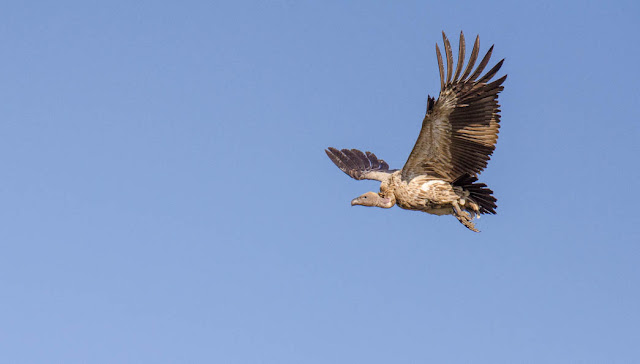
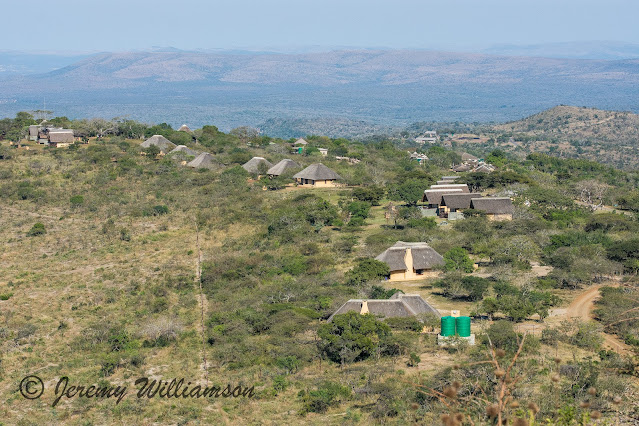
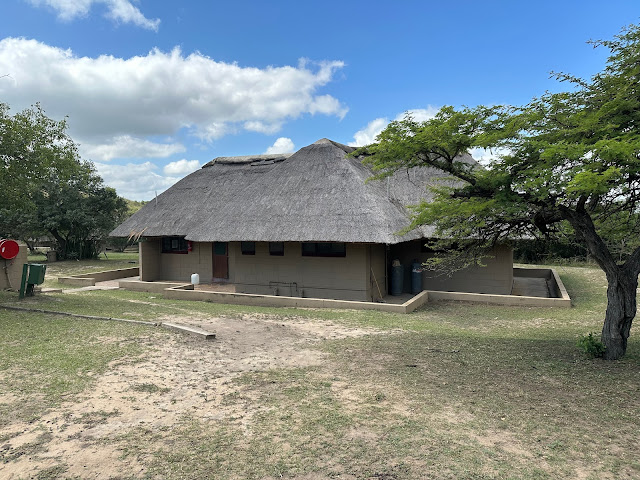


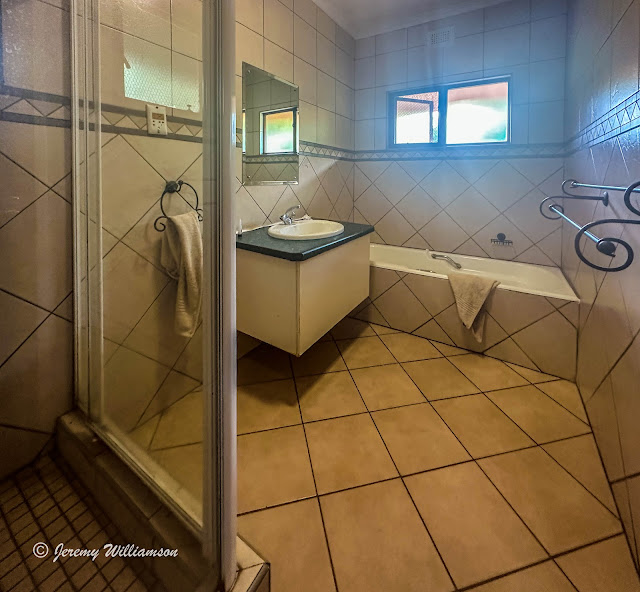




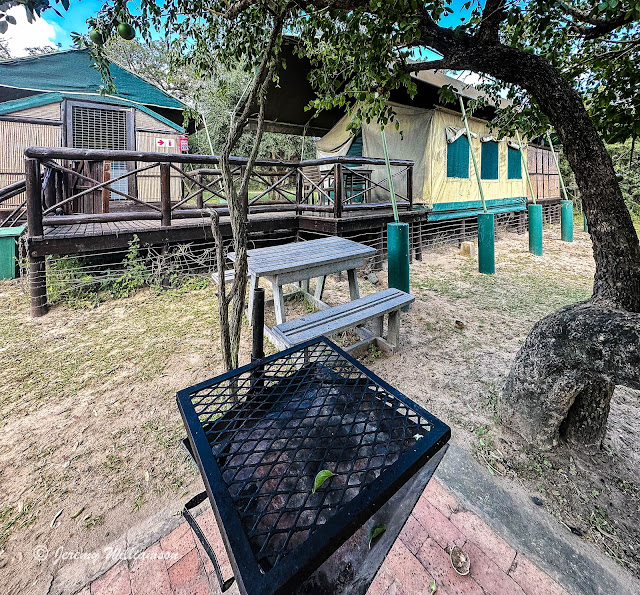
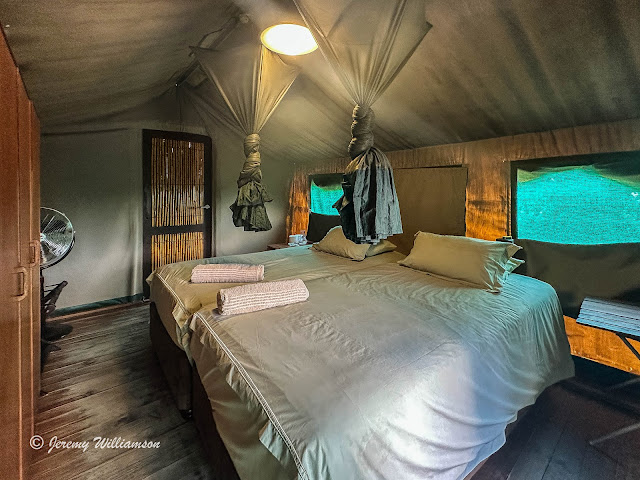


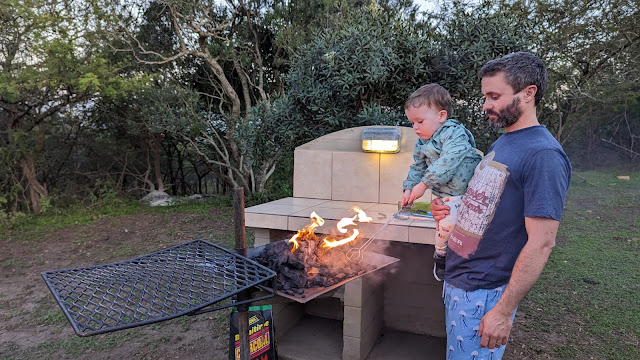






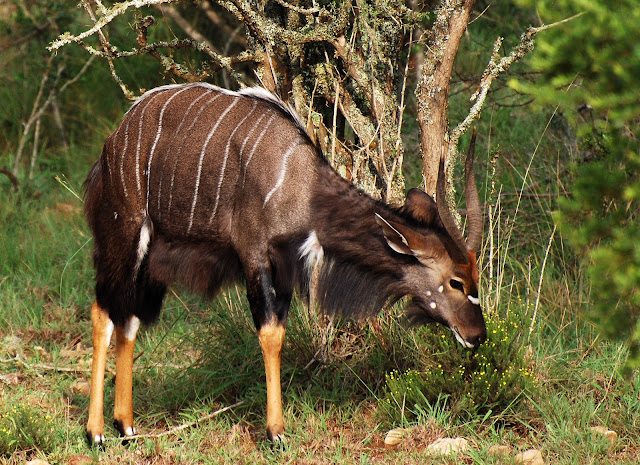




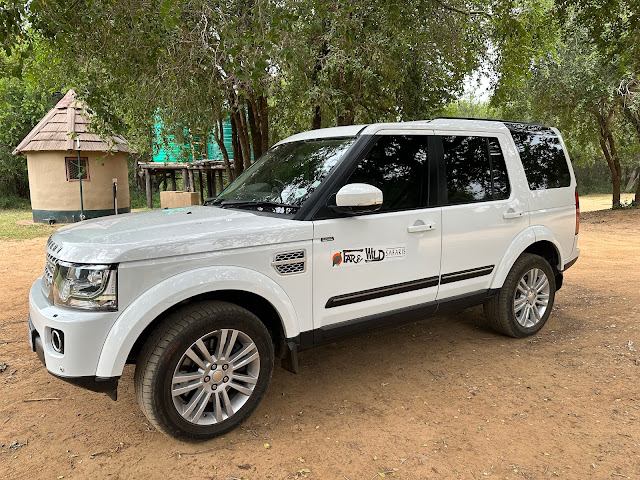
No comments:
Post a Comment